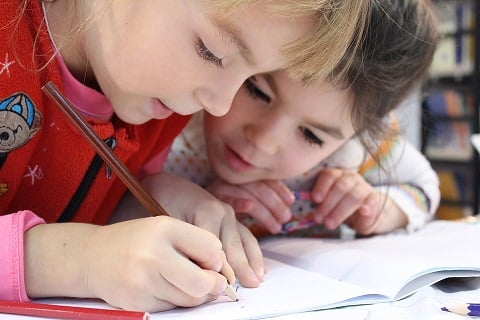Many teenagers are lacking basic financial literacy skills according to an international assessment from the OECD

The Paris-based economic organization used data from its Programme for International Student Assessment across 15 countries and economies and found that many 15-year-olds are unable to make even simple decisions on everyday spending.
The report, released this week but based on assessments in 2015, highlights the potential for a generation of financially struggling consumers in a world where there is more choice in financial products and services than ever before.
“They often lack the education, training and tools to make informed decisions on matters affecting their financial well-being,” said OECD Secretary-General Angel Gurría. “This makes it even more important that we step up our global efforts to help improve the essential life skill of financial literacy.”
Among the countries featured in the assessment was Australia where the teens scored better than the average but 20% still fell short of the baseline level of proficiency in financial literacy (OECD average is 22%).
The students were assessed for many aspects of personal finance, such as dealing with bank accounts and debit cards, or understanding interest rates on a loan or mobile payment plan. Across the entire study, just 1 in 10 students understood income tax.
The study also found that when compared with students of similar reading and mathematics ability, Australian 15-year-olds did less well in financial literacy, suggesting that students could be helped in using the skills widely taught in school to attain higher levels of financial literacy.
Most Australian students have a bank account and that was shown to improve financial literacy; 84% of students discuss financial matters with parents at least once a month, again shown to improve their understanding of finance matters.
The report, released this week but based on assessments in 2015, highlights the potential for a generation of financially struggling consumers in a world where there is more choice in financial products and services than ever before.
“They often lack the education, training and tools to make informed decisions on matters affecting their financial well-being,” said OECD Secretary-General Angel Gurría. “This makes it even more important that we step up our global efforts to help improve the essential life skill of financial literacy.”
Among the countries featured in the assessment was Australia where the teens scored better than the average but 20% still fell short of the baseline level of proficiency in financial literacy (OECD average is 22%).
The students were assessed for many aspects of personal finance, such as dealing with bank accounts and debit cards, or understanding interest rates on a loan or mobile payment plan. Across the entire study, just 1 in 10 students understood income tax.
The study also found that when compared with students of similar reading and mathematics ability, Australian 15-year-olds did less well in financial literacy, suggesting that students could be helped in using the skills widely taught in school to attain higher levels of financial literacy.
Most Australian students have a bank account and that was shown to improve financial literacy; 84% of students discuss financial matters with parents at least once a month, again shown to improve their understanding of finance matters.

